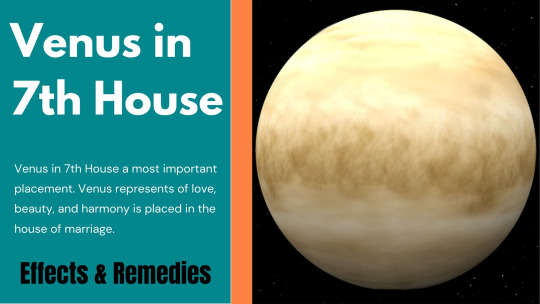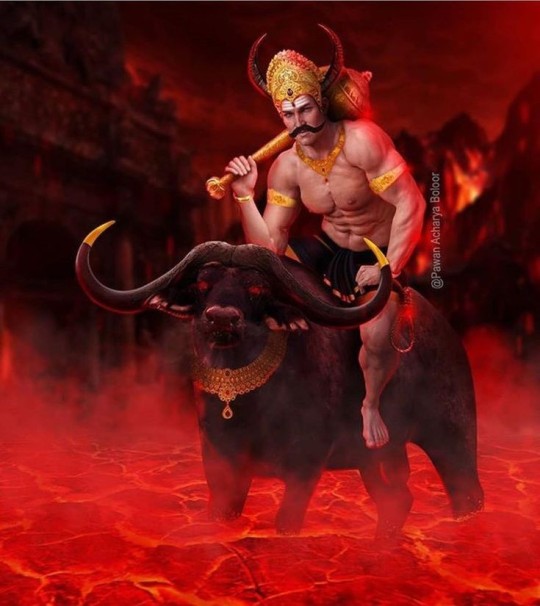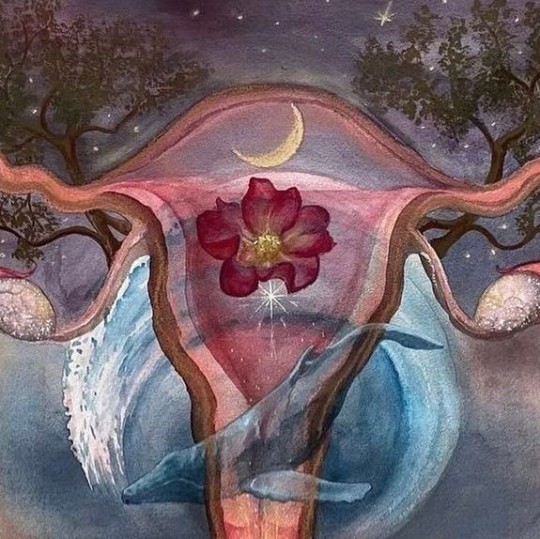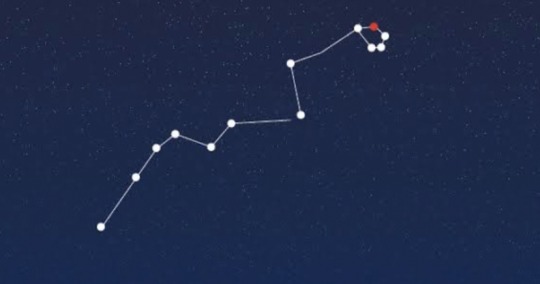#navamsha
Explore tagged Tumblr posts
Text
Who Are You? Where To Find Yourself in a Chart. Part 2.

Now, let's look at the divisional charts that help us know ourselves. Previously, I showed you the main indicators to look at when you want to analyze yourself. (Part 1)
D1: This is your birth chart. It represents your physical environment. This is where you have to deal with everything that is given to you at birth: social background, financial matters, culture, religion, nationality, gender, health. You struggle there: you cannot always be completely yourself because of that. D1 is your shell where you can hide when external matters attack your true self.
D9: This divisional chart, or also called navamsha, represents your true self. This is the true self that hides under your D1 shell. As the Moon is the primary planet of this chart, it also represents your destiny. The Moon is the mind and the mind impacts one’s destiny. Some astrologers only use this chart for predictions.
D12: This divisional chart represents your ancestors’ legacy to you: your genes and everything else. It is also your past before you were born. You still carry it within you. The Sun is the primary planet of this D-chart, it enlightens all the other charts. According to some astrologers, planets ‘ states in D12 influence how these planets function in the other charts. D12 can be called the super chart. Some astrologers only use it for predictions.
D30: This divisional chart represents your weaknesses. You need to know your accurate time of birth to make sure it is the right one.
D27: This divisional chart represents your strengths.
D60: This divisional chart represents your soul on a very high level that is shaped from all the past life experiences. It can be considered as your higher self’s map here. You need an extremely accurate birth time to get the correct chart.
#astrology#vedic astrology#jyotish#sidereal astrology#astro#astro community#astro notes#vedic astro notes#divisional charts#d1#d1 chart#d9 chart#d9#navamsha#d12#d12 chart#d30#d30 chart#d27#d27 chart#d60#d60 chart#charts#astrological charts
112 notes
·
View notes
Text
Talents in Navamsha
The D-9 Divisional Chart, or Navamsha Chart, is the second most important chart after the Rasi or D-1 chart. It reveals our potential and certain patterns that characterise our inner world, which typically evolve over a lifetime. With the help of the Navamsha chart, we can also identify our innate talents - these are reflected in the Trikona houses (1, 5, 9) and the planets located there. Any planet placed in one of these houses indicates capabilities and talents carried over from past lives, as well as the areas of life that are naturally preferred for one's activities.
Besides planets located in Trikona houses, it is important to analyse their placement in the Rasi (D-1) Chart, too. And of course, we need to pay attention to the signs of the Trikona houses as well as their rulers.
HOUSES IN NAVAMSHA CHART DESCRIBE...
The first house - The planets in the 1st house of the Navamsha chart reveal the skills, talents, and preferences that are inherent to a person from early childhood, essentially from birth. These often manifest as unconscious abilities, yet people still identify with them on a deep level. Interestingly, individuals may not even recognise these traits as special, assuming them to be average or ordinary simply because they come so naturally.
The fifth house - The planets in the 5th house of the Namasha chart will tell about those talents, which require some personal efforts.
The ninth house -The 9th house planets in Navamsha chart reveal the true direction, skills, and talents that help a person live in harmony with the world and fulfill their life mission.
PLANETS IN NAVAMSHA TRIKONA HOUSES (1,5,9):
Sun: bestows a gift to make an impression, inspire, manage, protect, and unite. Areas where to implement these talents: business, politics, social work, medicine and healing, protection of public order
Moon: talents in pedagogy, psychology, caregiving, the arts and writing. Areas where to implement these talents: charity, social work, childcare, artistic fields, psychology (especially in roles involving or supporting women)
Mars: natural skill in management, sports, martial arts, cooking, mechanics, electrical work, and engineering. Areas where to implement these talents: business (particularly oriented toward men, such as automotive, shipping, or barbering), restaurants, maintenance services, engineering, industrial design, and architecture.
Mercury: gives sharp intellect, eloquence, and talents in public speaking, writing, acting, teaching, and commerce. Areas where to implement these talents: business, trade, accounting, education, journalism, medicine, creative and technical writing and scientific research
Jupiter: grants innate wisdom, reason, and talent for teaching, coaching, and guiding others. Areas for applying these talents: education, writing, life coaching, psychology, medicine, law, jurisprudence, and banking.
Venus: bestows a natural talent for charm, aesthetic expression, and the ability to bring beauty into the world through art, decoration, and refinement. This placement often indicates artistic gifts in painting, music, design, and performance (dance, singing, etc.) It supports success in fields related to the beauty and entertainment industries. Areas for applying these talents: arts, sewing, beauty industry, entertainment, acting, makeup, design, and businesses aimed at or involving women.
Saturn: gives wisdom beyond one's years, natural talents in self-discipline, resilience, and endurance. It grants a strong capacity for long-term planning and working within structured systems. People with Saturn in trikona (1,5,9) houses often possess a karmic affinity for supporting the elderly or those in need of stability and care. Areas for applying these talents: social work, management, work with the elderly, construction, architecture, working with metals, building materials, antiques, or anything aged and worn that requires repair, restoration, or preservation.
Rahu:grants a broad perspective, a unique and unconventional mindset, and strong abilities in learning foreign languages and adapting to new environments. It bestows talents in psychology, entertainment, and innovative thinking. Individuals with this placement often stand out for their originality and can serve as both innovators and provocateurs, challenging norms and opening new paths. Areas for applying these talents: IT, social media, advertising, psychology, esoteric studies (including astrology), innovation-driven fields.
Ketu: grants strong intuition, deep knowledge in psychology, religion, esoteric studies (including astrology). Talents in maths, programming, IT. Afflicted Ketu can give thievish tendencies. Areas for applying these talents: psychology, IT, research, esoteric studies, hairdressing (Ketu is known for cutting abilities).

71 notes
·
View notes
Text
Astrological Combinations for a Genuine Guru
Genuine Gurus have specific astrological combinations in their horoscopes. Use these to identify a genuine Teacher whom you can follow for Self Realization
There was a question thus this post. If someone has to become a Guru, then there is one basic condition. He or she has to first Realise the Self or at least be a genuinely advanced aspirant capable of teaching Dharma, spirituality or even formal religion to others. And there are certain combinations in the horoscope which indicate this. So if you want to follow a certain person as a Guru and…
#hinduism#horoscope analysis#horoscope of guru#identify a guru#jyotish#mantra#moksh#navamsha#sanatan dharma#vedic astrology
0 notes
Text
Navamsha Kundli: नवमांश कुंडली का वैवाहिक जीवन पर क्या असर पड़ता है,यहां जानिएNavamsa kundali: ज्योतिष शास्त्र में नवमांश कुंडली का बहुत महत्व माना जाता है। यह सभी वर्ग कुंडलियों में सबसे महत्वपूर्ण मानी जाती है। जन्म कुंडली के बाद ज्योतिषी जिस वर्ग कुंडली का सबसे अधिक अध्ययन करते हैं वह नवांश कुंडली है।
#Your navamsa horoscope says#know about marriage and career#navamsha chart#navamsha#navamsa chart#navmansh kundli kaise dekhe#navmansh kundali#kundali#navamsha kundli rahul kaushik#navmansh kundli#Astrology News in Hindi#Astrology Hindi News
0 notes
Text
youtube
Moon as Scope of Future- Rishis Instructions for Predictions [Hindi]
Welcome to our YouTube channel! In this captivating video, Vinayak Bhatt, an esteemed expert in Vedic astrology, delves into the profound significance of the Moon and its role in our lives. Drawing from ancient classical books of Jyotish, he shares enlightening insights and references that shed light on the deep-rooted connection between celestial bodies and human destiny.
#vinayakbhatt#Astrology#Learnastrology#Moon#future#Astrologyprediction#rishis#prediction#vedicastrology#marriagematchmaking#navamsha#Youtube
0 notes
Text
VENUS IN 7TH HOUSE – ALL EFFECTS AND REMEDIES

Venus in 7th house is a placement that brings a significant influence on one’s relationships and partnerships. This placement indicates that the planet of love, beauty, and harmony is placed in the house of marriage, partnerships, and open enemies. People with this placement are likely to have a strong desire for harmonious and loving relationships, and they are excellent at creating a pleasant atmosphere in their partnerships. They are charming, diplomatic, and cooperative, making them great at negotiating compromises and finding solutions that work for both parties. However, they may also struggle with codependency or sacrificing their own needs for the sake of the relationship. Venus in the 7th house also indicates a potential for attracting partners who embody Venusian qualities, such as beauty, creativity, and sensuality. Overall, this placement suggests a strong focus on relationships and the pursuit of balance and harmony in them.
Full Article Source Link
#venus in 7th house#venus in the 7th house#venus in seventh house#7th house#venus 7th house#7th house venus#venus#venus in partner's 7th house#venus in libra#natal venus in 7th house#venus in 7th house synastry#venus in 7th house navamsha#venus in 7th house in navamsa#venus in partners 7th house#venus in the 7th house synastry#venus in 7th house remedies in red book#venus in astrology#venus in the 7th house of your birth chart#7th house astrology
37 notes
·
View notes
Text
India's Astrological Forecast: Navigating the Mars Mahadasha (2025-2032)
As India approaches the Mars Mahadasha from September 6, 2025, to September 6, 2032, an intriguing astrological phase unfolds, promising a period marked by transformation and challenges. This forecast delves into the implications of Mars’ transit through various houses in India’s Vedic Astrology charts – the Ascendant, Navamsha, and Dashamsha – specifically focusing on public sectors, economic…

View On WordPress
#2023#Ardra Nakshatra#Astrological Forecast#Border Disputes#Civil Unrest#Dashamsha Chart#Economic Forecast#financial stability#Foreign Affairs#Healthcare Reforms#India#international diplomacy#Mars in Gemini#Mars Mahadasha#National Development#Navamsha Chart#Public Relations#Public Sectors#Strategic Foresight#Transformation#Vedic Astrology
1 note
·
View note
Text
THE TENTH HOUSE: ANSWERING THE CALL TO WEALTH

the 10th house (10H) is arguably one of the most important houses in astrology, closely tied to your midheaven (MC), which represents your public image, reputation, and the way you are recognized in the world. it symbolizes your legacy, the energy others associate with you, and the role you naturally embody in society. however, understanding your career path goes beyond than just identifying the sign in your 10th house. to gain a deeper insight, you should also analyze its planetary ruler and the house it occupies, as these factors will give you a better idea about the careers that align with your natural strengths.
below is a guide shared by astrokit, along with some additional insights i’ve added, highlighting careers based on planetary placements in the 10th house, as well as the house placements of its planetary ruler, to help you align with your destined career path!
➶ ➴ if you follow vedic astrology, I recommend analyzing the 10H in the navamsha (D9) and dashamsha (D10) charts alongside the 10H in the rashi (D1) chart. combining insights from all three, along with the nakshatra ruler of the 10H will give a more well-rounded understanding of the career best suited for you.
CAREERS BY PLANETS IN THE 10H
sun: leadership, authority, government, politician, fame, boss, CEO
moon: women, hospitality, nursing, children, restaurants, commerce, mass media, public relations, travel
mercury: media, writer, communications, teacher, editor, author, transportation, craftsmanship, marketing
venus: arts, music, beauty, luxury, jeweler, entertainment, tourism, hotel management, design, graphics, fashion
mars: fitness, sports, entrepreneur, law enforcement, surgeon, doctor, engineer, military, sculptor, carpenter, cook
jupiter: law, teaching, travel, advertising, education, charity
saturn: organizations, metal industry, agriculture, service, labor, construction
north node (rahu): internet, entertainment, pharmaceuticals, research, engineer, innovation, electricity, sales, photography
south node (ketu): religion, spirituality, metaphysics, renunciation, research, charity, astrology, diviniation
uranus: science, electronics, internet, astrology, innovation, inventions, technology, crypto
pluto: research, insurance, surveillance, risk-management, death, investigator
neptune: photographer, movies, entertainment, drugs, poetry, music, liquids, alcohol

CAREERS BY THE 10H RULING PLANET THROUGH THE HOUSES
1H: self-employment, brand ambassador, entrepreneur
2H: banking, finance, investments, assets, consulting, teaching, writing, restaurants, speaking, vocals, dentistry, property, family legacy
3H: communication, marketing, social media, sales, writing, publishing, advertising, blogging, media, authorship, teaching (early education)
4H: asset management, real estate, vehicles, water, family, women, hospitality
5H: movies, films, glamour, stockbroker, education, authority, fame, children, romance, dating, hobbies
6H: health, service, law, labor, food, waiters, doctors, crime, justice, litigation
7H: law, business, commerce, exchange, consulting, public relations, marriage, therapist, designer, interior design, wedding industry, event planning, counselors
8H: insurance, social work, psychology, sex industry, occult, security, espionage, surveillance, taxes, death industry, divorce, research
9H: teaching (university), travel industry, hospitality, law, religion, foreign exchange, wedding industry, event planning
10H: leadership, government, politics, manager, CEO, presidency, public figure
11H: finance, networking, social media, acting, entertainment industry, parties/event planning
12H: charity, social work, hospitals, prisons, travel, foreign lands, mental health industry, artist, musician, import/export
if you’ve made it this far, i hope you enjoyed this little corner of my world. thank you for reading and please feel free to share your thoughts! always remember to love yourself as if it’s your greatest romance.
the pictures featured in this post are from pinterest.
until next time,
artemis x
#astro observations#astrology#astro community#vedic astrology#astro notes#astrology signs#astrology tumblr#rahu ketu#vedic astro observations#vedic astro notes#astroblr#astro placements#astrology blog#birth chart#astrology readings
914 notes
·
View notes
Text
Saturn Atmakaraka: Finding Light on the Path of Karma
"Saturn , has a tall and thin body, has yellow eyes and is airy (vata) in constituition; he has large teeth, is lazy and has coarse hair." Parashari 3.28-29



In Vedic astrology, the concept of AtmaKaraka is one of the most profound and revealing in the natal chart. The atmaKaraka, also known as the “soul indicator”, is the planet that bears the greatest responsibility for the individual’s spiritual journey. It represents the greatest challenges, lessons and the path that the soul must take in this life to achieve growth and fulfillment. The planet with the highest degree in any sign becomes the AtmaKaraka, “the significator of self” or “self-indicator”. This, as the lord of the Ascendant, can become the most powerful planet in your chart. It is the most important planet to consider when judging an individual’s spiritual nature, particularly in relation to its position in the ninth harmonic chart (navamsha). He provides us with a key to the aspirations of the soul. We often consider its position, such as the Ascendant, and read the chart indications accordingly.
This planet not only guides the purpose of life, but also indicates internal obstacles that a person needs to overcome to find their true identity. The AtmaKaraka position shows how we deal with our weaknesses, how we develop spiritually and where we should invest energy to evolve. The Atmakaraka carries the most important karmic lessons for this incarnation, becoming a key to understanding destiny and the soul’s inner motivations. Although there are many other important points in the birth chart, the Atma is special because it is a direct representation of the qualities that our soul has already mastered in past lives and those that still need to be worked on. Depending on which planet occupies this position, the nature of these lessons varies profoundly. AK influences how we approach challenges in different areas of life, right down to our spiritual worldview.
Saturn is traditionally the most difficult of the major planets, the legendary king of the malefics, that's why Saturn Atmakaraka is the most challenging. He often faces challenges in life, especially in the areas of work, health and relationships. Saturn is the significator of life itself. It indicates fate, term of life, longevity. A strong Saturn protects the life. Saturn is the planet to be propitiated in old age. He indicates the regime necessary for full life and longevity, violating which we suffer from premature decay and death. Though Saturn possesses a higher and more beneficent side, at least from the standpoint of the spiritual life, even this is stern and exacting, hard to live up to and to endure, a power of discipline, asceticism and solitude.
Saturn brings limitation and obstruction, hindrance in self-expression and in self-manifestation, which may become oppression and adversity. He is also known for being the God of Death, while Jupiter is a kind God. As Jupiter is the God of joy, he is the God of sorrow. Saturn is the significator of disease, old age and death; the great enemies of human life, which overcome all life bound by time. Therefore, the placement of Saturn in Atmakaraka is the ultimate issue of our life and destiny, the hard facts or the harsh reality that we must face. Because Saturn in the Atmakaraka indicates that the person may feel that his or her life is too tied to issues of responsibility, the need to make sacrifices or deal with pain and suffering in a constructive way. Here, destiny does not present itself easily or immediately, but is forged with perseverance, patience and facing the harshness of reality. For those with Saturn Atmakaraka, reality may seem harsher and so they may become depressed in the face of it. They refuse to give in to destruction but destruction is the necessary counterpart for creation, as is decay and death required for new life and growth.
Saturn gives bad luck, misfortune, difficult karma. It is the planet of bad karma or unhappy destiny. However, these may come upon a soul not because it has been bad or slow to evolve in past lives. Some souls, particularly those who are more advanced, may seek such things as a means of faster and deeper spiritual growth in life. Anyone can turn to the Divine in prosperity, but who can do so in great adversity? Such is the measure of a great soul. Saturn is also the suffering that makes us grow inwardly.
The influence of Saturn is to delay, to hold back. As the slowest of the planets, he slows things down, holds back their development. Those retarded in mind or speech are often under the strong affliction of Saturn. He makes us deaf and blind, stunted or deformed.
Saturn is the significator of old age, the God of time, who brings on all the degenerative processes of aging, the failure of our faculties and our powers. To the such a badly placed Saturn causes premature aging. Saturn takes away our vitality, on a physical or on a mental level. He causes depression, melancholy, self-pity and gives rise to worry, fear and anxiety. As a nervous planet, Saturn obstructs nerve functioning. He may cause numbness, paralysis or degenerative neurological disorders. His obstructing and repressing influence on the mind may promote neurosis or insanity. Saturn is behind most diseases, particularly chronic, degenerative diseases, diseases of old age, including arthritis and Cancer. As representing decay he can cause an accumulation of waste materials in the body and often is a point of devitalization in the chart.
As the planet of the ego, Saturn is also the planet of fear, on which the ego is based. Saturn creates fear and darkness in the mind. It makes us feel that we cannot overcome things, that life is against us. It makes us doubt ourselves, doubt even the Divine, and makes us prey to dark fears, fantasies, and phobias.

Saturn Devouring His Son is a painting by Spanish artist Francisco Goya. It is traditionally considered a depiction of the Greek myth of the Titan Cronus, whom the Romans called Saturn, eating one of his children out of fear of a prophecy by Gaea that one of his children would overthrow him.
Saturn is the God who eats his own children, who devours his own progeny. He raises people up, but eventually brings them down in a very precipitous fall. Those who are under the spell of their basic values will eventually be destroyed by them. He shows falsehood for what it is, in which there is the revelation of the enduring value of truth.
Saturn is not only in many ways the lowest of the planets, it is also the highest. Its lesson is the most difficult, but the most rewarding. Saturn is the grandfather spirit and lawgiver, our guiding ancestor. He represents not only the negative influence of the past that constrains us, he represents the positive spirit of the past that brings order and consistency to our lives. Saturn in Hindu mythology is the son of the Sun. The Sun moves in a chariot driven by Saturn. Saturn is the darkness, death and sadness that we must overcome for the revelation of the true light. He is the guardian of the mysteries of truth - which is possible only through a very precise and demanding cultivation of attention. Saturn is the yogi in meditation. He can give complete detachment and independence. He is the one who stands alone and goes beyond the limitations of the masses. It shows the path of transcendence, though necessarily difficult, by which all limitations can be overcome by resorting to our true and unlimited Self. In this respect, the power of Shiva, the lord of the yogis, the god of death and transcendence, can work through Saturn.
Saturn in the Atmakaraka places the individual on a path of self-improvement, where life experiences often involve long periods of effort without immediate rewards. The soul, in this case, seeks fulfillment that can only be achieved through discipline and acceptance of limitations, whether in relation to external issues (such as social responsibility, work and professional life) or internal issues (such as overcoming fears, insecurities and deep psychological issues).
Saturn here forces the person to face reality as it is, without illusions or escapes, leading the soul to mature and become more aware of the responsibilities it carries, whether in terms of individual karma or in relation to the collective. Life may seem like a constant search for stability, security and structure, but at the same time, Saturn demands patience to accept that the fruits of this search will not come immediately. Therefore, Saturn in the Atmakaraka is a position that brings depth and intensity to the spiritual and personal journey, challenging the individual to find greater meaning through experiencing the harshness of life, while working tirelessly to build something lasting, grounded and realistic.
#astronomy#jyotish#vedic astrology#astrologia#vedic astro observations#nakshatra#spirituality#spiritual awakening#dark moon#astrology#numerology#dark femininity#dark feminine energy#dark feminine aesthetic#sidereal astrology#vedicastrology#psicology#psicologia#thriller psicologico#ketu#rahu ketu#vedic astro notes#signos#astrologia védica#atmakaraka#materialist feminism#saturn#saturn atmakaraka#sharavana#uttara ashadha
153 notes
·
View notes
Text
Astrology observations 12. ( Self empowerment edition )
🌸 Look to your Vedic chart ascendant lord. Bring that planet's significations , positive qualities in yourself . Look at the planet , see where it is placed ( House , sign , conjunction , aspects related to it ) . This will indicate the major purpose direction of your personality in material life. Also pay attention to your body's health , mental health & emotional health.

🌸 Check the 5th lord of your chart , see it's qualities, placement , sign and bring those aspects of it in yourself and your outer life if it is well placed.
Indulge in something creative, self loving , something which makes your heart smile . This activates your 5th house too.
🌸 Look to the lord of 9th house , it's position, sign , aspects . Do the mantra of this particular planet or worship the Diety related to this planet. Or pray daily to your faith of God , feel the gratitude in your heart , study philosophy , broaden your mind & insight & outlook & understanding . Travel , enrich & share .
🌸 Look to the planet with the highest degree in your chart. See which navamsha sign it's placed in D9 navamsha chart. That planet represents your soul's inner essence & the sign represents the best situation in which you can flourish and truly grow into your truest calling. 💗💗💗

Pictures from Pinterest
Love yourself, live your heart out 💚
DM for reading
#astrology#astro observations#counseling#astrology observations#vedic#vedic astro notes#astro notes#vedic astro observations#astrology blog#astrologer
112 notes
·
View notes
Text
Bharani Nakshatra



Zodiac Sign: Aries
Astronomical Name: 35 Arietis
Gender: female
Ruling Graha: Venus
Degree Range: 13°20' to 26°40'
Charan Rashi / Navamsha: Leo, Virgo, Libra, Scorpio
Deity: Yama ( God of Death )
Quality: Balanced
Nature: Ugra
Trigun: Rajasic
Symbol: Yoni /Vulva
Meaning: Bearing Children
Purusharth: Artha
Gana: Manushya
Varna: Mleccha
Nadi: Pitta
Yoni: Elephant
Direction: East
Movement: Downward
Resemblence: Maintance (Sthithi)
Body Part: Lower foot
Color: blood red
Element: Prithvi
Animal: Male Elephant
Bird: Crow (kaak)
Tree: Awala or Indian gooseberry
Bharani is the state of the soul where it has received a body and is in the Mother's womb. It is an intense and extremely transformative nakshatra.
It is ruled by Yama(the God of Death). He was cursed by his stepmother Chhayadevi for kicking her pregnant belly that his feet will be infested with maggots. He also was abandoned by his own mother Devi Sangya.Bharani natives have mother wounds.They do not share a good relationship with maternal figures.
Saturn gets debilitated in Bharani nakshatra.(He too has an injured foot which causes him to walk slowly) Saturn is known for having a very close relationship with his mother Chhayadevi.
Bharani natives have a peculiar way of walking.Their steps are often parallel and heavy
They are very aloof and introverted in nature.Wherever Bharani is in the chart,the native does not like to meet people.
They are very upright and moral individuals who have a strong faith in justice.
They also have to deal with a lot of undue accusations and baseless rumors throughout their lives. It's better that they do not pay any heed to those.
They are very wise in nature (as denoted by elephants). Elephants have a matriarchal society of their own and are regarded as one of the most intelligent creatures in the world.They take care of their young till adulthood and the adult children often visit their parents. They also have a funeral ritual of their own(both tying into the Bharani theme)
Association of Bharani with Yama (the God of Death) and womb signifies that Birth and Death are intertwined and one cannot exist without the other.
#hindublr#astrology#vedic astrology#vedic astro notes#vedic#vedic astro observations#birth chart#nakshatra#bharani#venus#aries#sidereal astrology#nakshatras#astrology notes#astrology community#desiblr#astroblr
49 notes
·
View notes
Note
Hey, and another thing... I'd love to hear a little about the d9 chart. Someone was once told me that it can only be activated halfway through your life... and I've felt like it since forever so that scares me a little :( What can you say about this?
That's an interesting remark, thank you, I will develop D9's meaning more in the future. It's a fascinating subject. Yes, it's true. Some astrologers say that the D9 gets activated in your mid 30's only. It's false and true in the same time. D9 or navamsha represents your inner self, the real self that is hidden because the environment (represented by D1) doesn't allow your inner self to express itself openly. D9 is always in yourself from the beginning to the end. But the day you discover your real self only depends on you. Most people discover their D9 self in their mid 30's only because they're the extrovert type, their mind being more focused on the external environment, so, at the Saturnian age of 36, they end up reflecting about themselves and they find their D9 out. But, the other people, mainly the introverts, or those who are open to astrology etc, will be more likely to be aware of their hidden self earlier. So, don't worry. You're just more in touch with yourself and there are many people in that case too. 😊
12 notes
·
View notes
Text
Marital prospects with a foreign partner or indications of a marriage abroad in Vedic Astrology
Vedic astrology provides profound insights into relationships and marital prospects. One intriguing aspect that fascinates many astrology enthusiasts is the possibility of marrying a foreign partner or having a marriage abroad, away from one’s homeland.
Key astrological houses indicating foreign marriage:
Number 1: the 7th house (house of partnerships and marriage): the 7th house and its lord play a crucial role in evaluating marital prospects, particularly the first marriage. Rahu presence in the 7th house, aspecting the 7th house, or forming conjunctions with Venus or Jupiter, significantly increases the chances of an intercultural marriage.
Rahu is strongly linked to foreign influences and unconventional experiences. It often disrupts traditional patterns and habits, leading to unexpected, unpredictable and sometimes even strange life events. Its energy plays a significant role in relationships, making marriage to someone from a different culture or religion highly likely.
Number 2: the 9th house (house of long journeys and foreign connections): the 9th house governs foreign travel, spiritual journeys, and higher knowledge. It is also linked to second marriages, as it follows the 8th house (house of crisis, endings, transformation, and what comes after—a second marriage or a new partner).
A connection between the 7th house lord and the 9th house or vice versa strongly indicates marriage with a foreign spouse.
Influence from shadow planets Rahu or Ketu, or the 9th and 12th house lords, can indicate the possibility of a spouse from a distant land.
Number 3: the 12th house (house of foreign lands and immigration): the 12th house signifies distant places, isolation, and foreign residence.
If the 12th house lord connects with the 7th house or its lord, it points to a spouse from a foreign land or settling abroad after marriage.
Various planetary combinations for a foreign marriage in the Rasi Chart and Navamsha
Rahu/Ketu conjunct Jupiter (Jupiter + Rahu: Guru Chandal Yoga)
If present in Navamsha (D-9), even without appearing in the main birth chart (Rasi), it significantly increases the likelihood of marriage to a foreigner.
If found in both D-1 and D-9 charts, the chances are even stronger.
2. Rahu conjunct Venus
This combination suggests a potential marriage abroad.
It is more evident for males, as Venus represents a female partner.
In a female's chart, it may indicate a romantic affair abroad leading to an unexpected marriage.
3. Rahu as Darakaraka (DK)
If DK (the planet with the lowest degree in the birth chart, signifying a spouse) is Rahu, or aspects the 9th or 12th house lord, a foreign spouse is likely. NOTE: Ketu cannot be Darakaraka - it does not make any aspects.
4. The 7th house lord in the 12th house
This placement suggests a spouse from a distant land or a marriage that leads to relocation
5. Jupiter conjunct Venus in the 12th House
For males: Venus in the 12th house signifies a foreign spouse.
For females: Jupiter in the 12th house carries a similar indication.
If Venus (for males) or Jupiter (for females) is in conjunction with the 12th house lord, the possibility is reinforced.
This combination can also indicate a spouse who frequently travels or works abroad, i.e., there is a physical distance between partners.
6. Multiple planets in the 12th House in Navamsha D-9
If 3 or more planets are in the 12th house or conjunct the 12th house lord, a foreign marriage is likely.
7. Venus in the 9th house aspected by Rahu
This configuration suggests a strong attraction to foreign people and cultures in general.
If Venus or Jupiter as DK is in the 9th house, it further indicates a foreign spouse.
8. The 7th house in Pisces or ruled by Pisces
Pisces, being a sign of spiritual journeys and distance, can indicate marriage with a partner from a different cultural and religious background.
9. Rahu-ruled nakshatras and their influence on the 7th house, or 7th house lord
If Venus (for males) or Jupiter (for females) or the 7th house lord are in Ardra, Swati, or Shatabhisha nakshatras (which are ruled by Rahu), a foreign spouse is likely.
10. Jupiter or Venus in the 4th house under Rahu’s Influence
This suggests a foreign spouse living in the native’s homeland.
If Ketu is involved, it may indicate an unusual or spiritual partner.
The above planetary combinations apply to both the Rasi chart (D-1) and Navamsha (D-9) chart, as Navamsha specifically reveals marriage life. When these indications appear in both charts, the likelihood of a foreign marriage or a spouse from afar significantly increases. Further astrological analysis of the 7th, 9th, and 12th houses, along with Rahu and Dasha (transit) periods helps determine the prospects of marrying a foreign partner or settling abroad after marriage.

#vedic astrology#jyotish#marriage#foreign marriage#indications of the marriage with a foreign partner#13lunarstar
111 notes
·
View notes
Text
Predicting endings with Khara Navamsha
The Khara Navamsha is an important tool in Vedic astrology for predicting life events like death and transformations. Navamsha analysis is necessary for accurate predictions.
There was a question thus this short post on analysing the Khara navamsha. As per the classics the Khara navamsha is counted from the Birth degree /Lagna. It is the 64th navamsha from the ascendant degree. Thus the Khara navamsha lies in the 8th house. Generally we use Khara to find out the time of death. But apart from this final event of this life, we can also use the Khara for understanding…
#advanced techniques#drekkana#dreshkona#horoscope analysis#jyotish#khara navamsha#learn astrology#malefic planets#navamsha analysis#sanatan dharma#tejaswini#vedic astrology
0 notes
Text
Navamsha Kundli: लग्न कुंडली में नवमांश कुंडली क्या है महत्व, क्यों है इतनी जरूरीNavmansh Kundali: आप सभी को ज्ञात है कि कुंडली में नवें भाव को भाग्य का भाव कहा गया है। यानि आपका भाग्य नवां भाव है। इसी प्रकार भाग्य का भी भाग्य देखा जाता है ,जिसके लिए नवमांश कुंडली की आवश्यकता होती है।
#91 navamsha#venus in navamsa chart#labh navamsha#kundli#pushkar navamsha#dashamsha kundli rahul kaushik#navamsa#chandra kundli#vargottama navamsha#rashi tulya navamsha#Astrology News in Hindi#Astrology Hindi News
0 notes
Note
Hello! I am big fan of your blog and also could you tell us about alesha Nakshatra?
Thanks and keep up the good work :)
Hey! Sorry for answering your ask late.
ASHLESHA NAKSHATRA

(this picture does not belong to me. Credits goes to the rightful owner)
Ashlesha is ruled by mercury
People who have ashlesha nakshatra are born under gandmula nakshatra
People born under this nakshatra are known for their intelligence.
They also know how to persuade people well. As this position also grants them the ability to make people hear them.
They also are very strategic and have research based mind. They like to make plans and then get things done.
As this nakshatra is represented by snake, so people born under are also considered cunning. They can also fool other people easily.
They also are very intuitive and can be great in careers related to scientists, psychologist, healer etc.
However, they do not trust other people easily which also has negative aspect to it. They may also struggle with power imbalances as they prefer to have much power.
They also have an entrepreneurial mind. So if other placements are supportive, they can run their business very well.
They also do not like to express their feelings and not talk much. They like to keep their things privately which can make other people frustrated sometimes.
But when it comes to need, they are always there to help people they love. They are reliable.
Just like snake's eyes, their eyes are also considered hypnotic and eyes which tells that they are hiding many things.
These people are also considered very generous and calm. And even down- to- earth.
Many of them earn names in their respective fields because of the determination they work with.
Four padas of nakshatra:
1st pada: Sagittarius navamsha; ruled by Jupiter
People born under this pada are considered balanced. They are also very hardworking.
2nd pada: Capricorn navamsha; ruled by saturn
People born under this pada can struggle with power imbalances. They also are authoritative.
3rd pada: Aquarius navamsha; ruled by saturn
People born under this pada are much more interested in learning about the depths. Most of them study in a research based field.
4th pada: pisces navamsha; ruled by Jupiter
They have good communication skills. They also have the ability to lead people well and are intelligent people.
#astrology#astro community#astro notes#jyotish#sidereal astrology#vedic astro notes#vedic astrology#astro observations#ashlesha nakshatra#ashlesha#nakshatra
161 notes
·
View notes